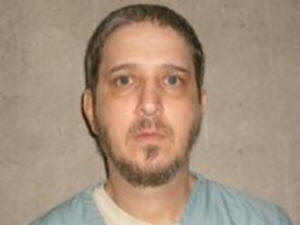|
 Oklahoma
seeks to halt three executions after drug mix-up Oklahoma
seeks to halt three executions after drug mix-up
 Send a link to a friend
Send a link to a friend
[October 02, 2015]
By Heide Brandes
OKLAHOMA CITY (Reuters) - The Oklahoma
attorney general on Thursday sought an indefinite stay of three
executions including that of Richard Glossip, whose planned execution a
day earlier was stopped at the last minute because of a mix-up with
lethal injection drugs.
|
|
 Scott Pruitt filed the request with the Oklahoma Court of Criminal
Appeals so the state could examine what went wrong with its
execution protocols. Legal experts said the court was expected to
grant the request. Scott Pruitt filed the request with the Oklahoma Court of Criminal
Appeals so the state could examine what went wrong with its
execution protocols. Legal experts said the court was expected to
grant the request.
In his filing, Pruitt said the office needed to evaluate what
happened on Wednesday, when the state received potassium acetate for
use in its three-drug protocol instead of the court-approved
potassium chloride.
Oklahoma revised its death chamber protocols after a flawed
execution last year when medical staff failed to properly place an
IV line on convicted murderer Clayton Lockett, who was seen twisting
in pain on the death chamber gurney.
He died about 45 minutes after the procedure began because of an
accumulation of lethal injection chemicals that had built up in his
tissue.
Glossip, 52, was convicted of arranging the 1997 killing of Barry
Van Treese, the owner of an Oklahoma City motel that Glossip was
managing.
 His lawyers said no physical evidence tied Glossip to the crime and
that he was convicted largely on the testimony of Justin Sneed, then
19, who said Glossip hired him to carry out the killing. Sneed
received a life sentence.
Glossip has maintained his innocence and his lawyers presented
statements in recent days from jail informants who said Sneed
confessed to setting up Glossip so he could avoid a death sentence.
One of the drugs Oklahoma planned to use on Glossip, potassium
acetate, has not been used in any execution and is not on any
execution protocols, said Megan McCracken, an expert on the death
penalty at the University of California Berkeley School of Law.
[to top of second column] |

"The Oklahoma Department of Corrections can't get it right," said
McCracken, a death penalty opponent.
Department of Corrections Director Robert Patton said his group
received the drugs on Wednesday morning and did not know about the
mistake until about two hours before the planned execution. After
consulting with the attorney general, Patton asked Governor Mary
Fallin to issue a stay, he said in a statement.
Glossip had previously tried to stop his execution by saying another
of the drugs used in the mix could cause undue suffering.
Lawyers for Glossip and other Oklahoma death-row inmates had
challenged midazolam, saying it could not achieve the level of
unconsciousness required for surgery and was therefore unsuitable
for executions.
"I have to make sure that I clear my name so that way I don't have
to do this again," Glossip told broadcaster KOCO after Wednesday's
stay.
(Writing by Jon Herskovitz; Editing by Peter Cooney and Mohammad
Zargham)
[© 2015 Thomson Reuters. All rights
reserved.]
Copyright 2015 Reuters. All rights reserved. This material may not be published,
broadcast, rewritten or redistributed.
 |